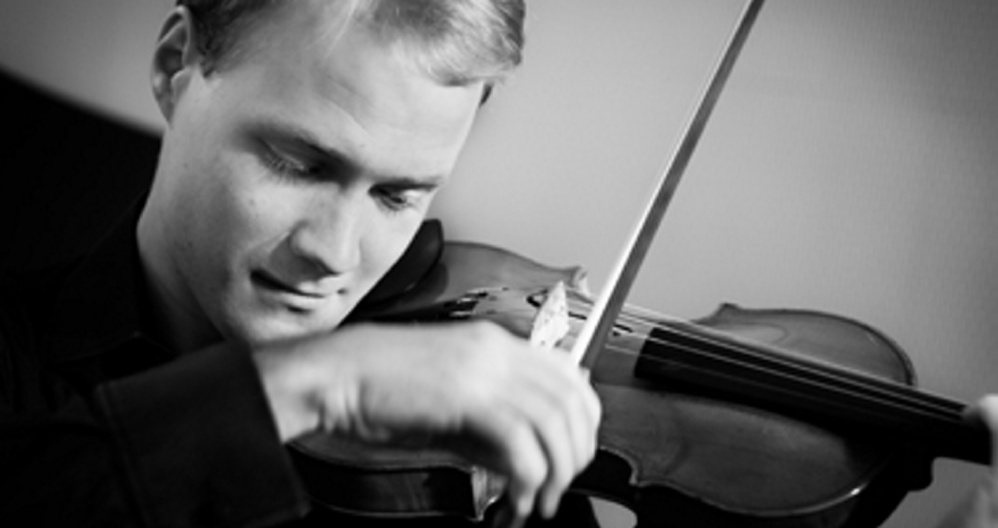You might think that Beethoven’s Fifth Symphony is the most frequently played warhorse in the classical music canon. But you would be wrong – at least, if you’re thinking in terms of concert performances, as opposed to recordings and broadcasts. Probably because of its supposed ubiquity, orchestras program it less frequently than you would expect; in fact, according to the most recently published repertory report by the League of American Orchestras, which monitors what its member ensembles play, the Fifth was not among the 10 most frequently performed works (although the Beethoven Seventh was).
Of course, an orchestra presenting the complete Beethoven symphony cycle, as most do every now and then, can obviously offer the Fifth without any special statistical pleading, and Robert Moody and the Portland Symphony Orchestra are in the midst of such a traversal, to be completed over three seasons, of which this is the second. To conclude this year’s installment, Moody led the orchestra in an excellent, well-polished performance of the Fifth on Sunday at Merrill Auditorium.
It’s easy to forget, if you hear the Fifth mostly on recordings, how thrilling a live performance of the work can be, even if you don’t agree with every detail of the conductor’s interpretation. I had a few quibbles on that account. I thought Moody’s decision to launch into the work’s familiar opening motto without waiting for the applause to end was a needless stunt, although I suppose if there’s one work in which you can get away with that, it’s this one. I also found his hushed, staccato reading of the final section of the third movement a bit precious, though never so much as to become cloying.
That said, an argument could be made for Moody’s approach. It put a welcome spotlight on the precise, chiseled playing of Mary Watt, oboist, and Janet Polk, the principal bassoonist. The insistent C on the timpani, more typically heard as a muffled rumble, had a palpable presence here. And the unusual daintiness Moody brought to this section proved an effective setup to the glorious, fortissimo rising chords that open the finale.
All told, the orchestra gave a beautifully focused, fully energized performance of the Fifth, with all the necessary elements in place, including a rich, full-bodied string sound, nicely textured and nearly flawless brass playing, characterful wind work and, above all, a sense of drama and grandeur.
Moody opened the concert with a sizzling account of Smetana’s “Bartered Bride” Overture – a splashy potboiler, to be sure, but one that showed off the nimbleness of the orchestra’s strings, not to mention the solidity and tightness of its ensemble playing.
The real business of the first half, though, was Erich Wolfgang Korngold’s Violin Concerto (Op. 35), a work composed for Jascha Heifetz in 1945, and given a lustrous, warm-toned reading here by Christoph Koncz, a 29-year-old member of the Vienna Philharmonic who is also pursuing a career as a soloist and conductor.
Korngold remains best known for the film scores he composed after he fled the Nazis and landed in Hollywood in 1934. If you love classic films, you know his scores for “Captain Blood,” “The Sea Hawk” and “King’s Row,” just for starters. His Hollywood work essentially scuttled his career as a serious composer, Heifetz’s championship notwithstanding. Serious musicians and critics derided his music, unfairly, as “more corn than gold,” and performances were rare.
Nowadays, the classical music world has (more or less) outgrown its snobbery about film music and its composers, and Korngold is getting a fully deserved reconsideration. The Violin Concerto is a beautifully wrought score, steeped in Romanticism, but with a slight angularity and occasional harmonic twists that mark it as a mid-20th century work.
Koncz, who has a slight film association as well – you can see him, at 9 years old, playing the child prodigy Kaspar Weiss in “The Red Violin” – moved easily through its virtuosic passagework, but kept the emphasis on musicality rather than showiness. He and Moody were both performing the work for the first time, Moody said during the pre-concert talk. They played it with an evident unity of purpose, and the orchestra played the often spare, sometimes lush music with much the same warmth Koncz brought to it.
Allan Kozinn is a former music critic and culture writer for The New York Times who lives in Portland. He can be contacted at:
allankozinn@gmail.com
Twitter: kozinn
Send questions/comments to the editors.


